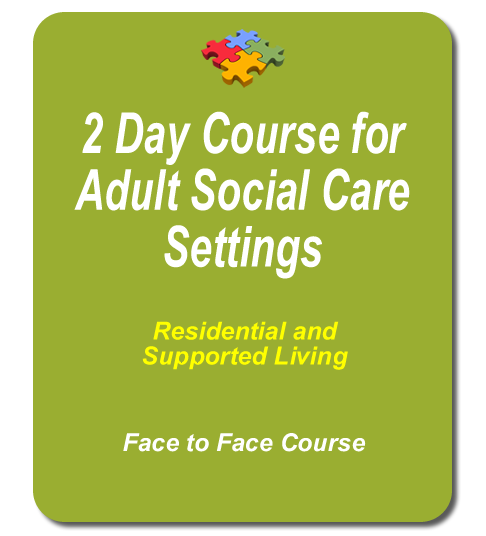Telephone: 01789 653575

It will also allow them to identify, understand and respond confidently to behaviour that they would ordinarily find stressful using a wide range of proactive strategies and techniques.
The course content contains a large number of practical and experiential exercises; this course is thought-provoking and insightful. Delegates will come away with a practical ‘tool bag’ of new skills and approaches that they will be able to apply immediately.
The course will:
The philosophy behind +ProActive Approaches is one of understanding, empathy and adopting a proactive mindset in relation to behaviours of concern. This empowers staff members to become inquisitive about behaviour and consider it from a context of either being an unmet need, frustration, anxiety, trauma & attachment issues, environmental factors or communication difficulties. They will then be able to understand the behaviours correctly and subsequently develop the correct support plans that will limit the likelihood of behaviour in the first place. This approach will ensure that your service effectively focuses on supporting your people rather than trying to manage them.

The 2 Day +ProActive Approaches Course (Adults Social Care Edition) will give your staff teams a clear insight into the reasons for behaviours of concern. During the course, they will gain significant benefit from the dynamic nature of the interactive learning, as well as the positive impact on understanding and information retention from the experiential exercises and video case studies.
The course covers the following:
The What – Impact on development
The Why – The Science behind the outcome of impact
The How – Practical Application of a Trauma and Attachment Lens
Positive Handling and Restrictive Practices
FAQs
Q: Is the course Accredited?
A: Yes, this course is fully certificated by BILD Act under the RRN Training Standards.
Q: How long does the course last?
A: 2 Days. The usual start and finish times are 9.30 am – 4.30 pm, however, this can be flexible depending on your needs. There will be a mid-morning & mid-afternoon break as well as a lunch break. Lunch is not provided.
Q: Where are the courses run?
A: Venue supplied by yourselves – we come to you! We will supply you with a detailed venue specification to make a venue easier to source.
Q: Is the course certificated?
A: Yes, all delegates who pass the course will be issued with a certificate as part of the course fee. Your certificates will include a BILD Act logo. Certificates are issued based on competence and not attendance.
Q: Is the theory part of the course just Powerpoint?
A: Absolutely NOT! The course utilises a unique blend of video, case studies, group exercises, personal reflection, experiential exercises to effectively impart the required knowledge and skills in order to empower staff to support children and young people effectively.
Q: How many delegates can attend?
A: 12 people with 1 Trainer, up to 18 people with 2 Trainers. These ratios are in line with the RRN Training Standards.
Q: How much does it cost?
A: Click on the ‘Download Info Pack’ button below to receive your copy of our PDF Info pack (delivered instantly via email). The pack includes full course details and costs.
For more information on the course and for details on pricing and upcoming dates, please click the “Download Info Pack” button below, or email us on
support@proactiveapproaches.co.uk.
Alternatively, if you have unanswered questions or want to discuss if this course is right for you, use the “Book A Call With The Team” button to arrange a convenient time to speak with us.

